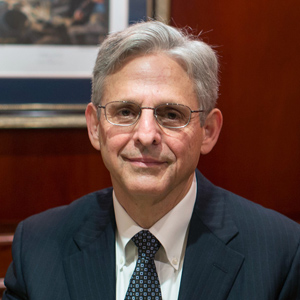Garland and Roberts mostly agreed while on the DC Circuit together

Judge Merrick Garland. Photo from the White House.
Supreme Court nominee Merrick Garland and Chief Justice John G. Roberts Jr. agreed 85 percent of the time in their significant decisions while on the U.S. Court of Appeals for the D.C. Circuit.
USA Today looked at 34 significant decisions by Garland and Roberts and tallied their agreements and differences. When they agreed, “they ruled both for and against federal agency actions as well as employers, workers and consumers,” the newspaper reports. “They came down hard against terrorist activities involving Iran and Libya. They nearly always denied criminal defendants’ efforts to reverse convictions or reduce sentences.”
In cases where they disagreed, Garland:
• Voted against reconsidering a panel decision that said plaintiffs challenging gun restrictions had to first seek gun permits and be turned down, even if that subjected them to criminal charges.
• Upheld an agency ruling blocking a housing development because it would endanger the arroyo southwestern toad. Roberts dissented from a refusal to grant a rehearing in the case. “The panel’s approach in this case leads to the result that regulating the taking of a hapless toad that, for reasons of its own, lives its entire life in California constitutes regulating ‘commerce … among the several states,’ ” Roberts wrote.
• Dissented from a Roberts opinion that found Amtrak wasn’t a government body, and as a result two contractors who delivered defective rail cars to Amtrak weren’t guilty of violating the False Claims Act.
• Voted not to rehear a panel ruling against Vice President Dick Cheney in a case involving the secrecy of records of an energy task force he headed.



